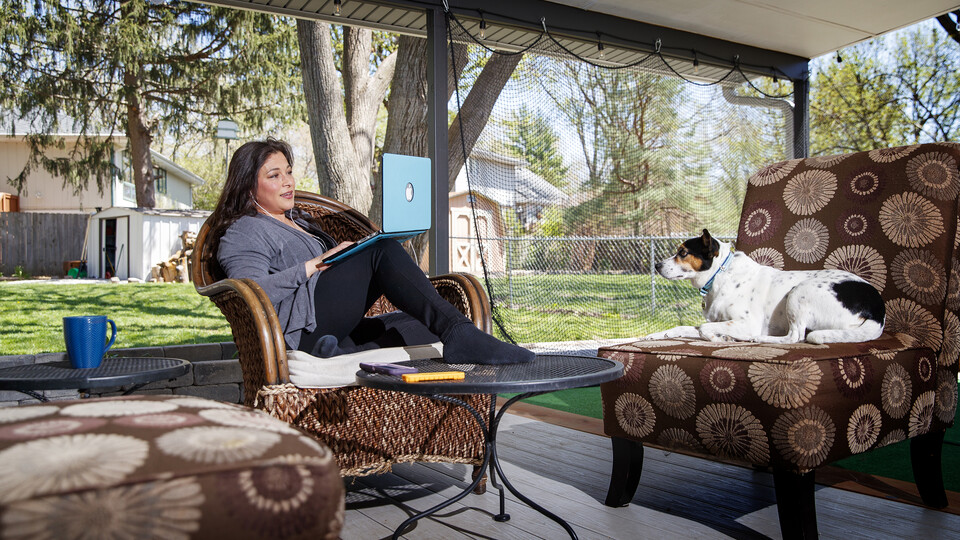
Ingenuity carries Morales through remote teaching
29 May 2020 By Deann Gayman | University Communication
In Amanda Morales’ Multicultural Education and Teaching in a Pluralistic Society courses, life suddenly mirrored the lessons she wanted to impart on her students.
“Our Multicultural Education course, especially, talks about how important it is to model connectedness with students from all different backgrounds, students that are different from you, students who are dealing with really complex realities in their home life,” said Morales, assistant professor in teaching, learning and teacher education in the College of Education and Human Sciences. “The whole course is about teaching them how to be the best educator for all kids, so I had an opportunity, and it was important to me, to model those types of pedagogies with them.”
One way to do that, she said, was to home in on her communication with students.
“Being available to my students, and communicating a lot with them was vital, making sure that I was acknowledging their humanity and their well-being,” she said. “They were navigating such difficult social and emotionally jarring realities. Giving choice and flexibility in how students could engage with the class, I think, was also an important part of maintaining trust with them, and ended up allowing them to finish the semester strong.”
Morales also spent time making sure that the syllabus, assignment details and class expectations were consistent and clearly explained, as students would be doing more independent work than originally planned. Morales relied on a variety of delivery methods for class, including recorded Zoom sessions, interactive Google slides, VidGrid, discussion boards, Kahoot, and other functions within Canvas.
“Without that in-person class time to answer questions, sometimes the only clarification or communication they're going to get that I can guarantee is what's written or what's included in the assignment,” Morales said. “It made me go back and really read what I was saying and really read my assignment descriptions and make sure that I was being very clear in where things were located.”
What she learned will make her a better communicator going forward, she said, regardless of where instruction will take place. The refocusing especially helped her prepare for teaching two courses over the summer term.
“In the feedback I got from students, they appreciated having all of the information there, and that it was very clear what they were expected to do and where they could find things,” she said.
Morales also encouraged her students to share their own experiences with their peers, adding an element to her classes that wouldn’t have existed outside of this situation. It was powerful, she said.
“It was important, and I think, humanizing for them to hear the struggles of their classmates,” Morales said. “For those that were struggling, it was nice for them to hear other people's struggles because it made them realize they weren't alone.”
Looking forward to fall, Morales is cautiously optimistic, but hopes more attention will be paid to graduate teaching assistants.
“Graduate teaching assistants, who themselves are often novice teachers, were juggling moving their own courses online, shifts in housing arrangements, and dealing with concerns about family back home, while also navigating being a student in this environment,” Morales said. “Being charged with moving to online instruction was a lot to put on graduate teaching assistants, and I think that we can strive to do better in supporting them. While this is all hindsight, moving forward, it’s important that we learn from this and are more attentive to the kinds of direct support we offer for graduate teaching assistants.”
College of Education and Human Sciences
Teaching, Learning & Teacher Education